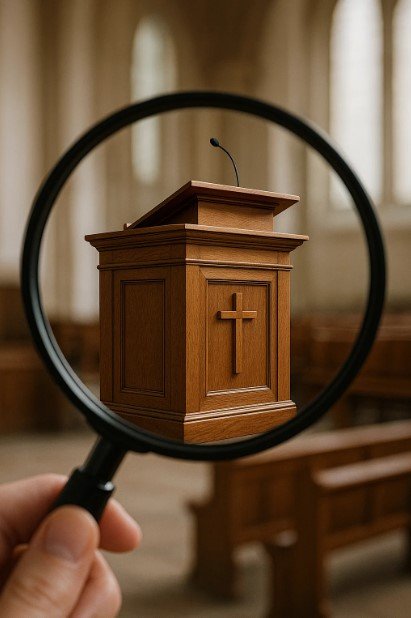
The Great Reversal: When God Flips the Script
There’s a scene in the classic film Trading Places where two wealthy commodity brokers make a bet about whether they can transform a homeless street hustler into a successful businessman while simultaneously reducing their protégé to poverty. The comedy hinges on our assumptions about who belongs where in society’s pecking order. By the film’s end, the supposedly “inferior” characters have outsmarted the elite, leaving the powerful brokers bankrupt and humiliated. What makes this narrative so satisfying is our deep intuition that the world’s rankings might not reflect true worth; that perhaps, the script needs flipping.

The Art of Unhelpful Helping
There’s a fascinating study in neuropsychology that reveals something profound about human decision-making. When researchers examined brain scans of people making moral choices under pressure, they discovered that our prefrontal cortex, the region responsible for ethical reasoning, actually becomes less active when we’re focused intensely on achieving a desired outcome. In other words, the more desperately we want something, the more likely we are to experience what scientists call “moral myopia” – a narrowing of our ethical vision that allows us to justify almost anything in service of our goals. It’s as if our brains literally shut down our moral reasoning when we become too invested in a particular result.

When the Last Shall Be First: God’s Upside-Down Kingdom
There’s a photograph that went viral a few years ago – you might have seen it. It showed a homeless man sitting outside a luxury restaurant in Manhattan, sharing his meager meal with a stray dog, while through the window behind him, wealthy patrons in designer clothes ignored both the man and the animal as they consumed hundred-dollar steaks. The image captured something profound about the nature of honor and worth in our world – how we measure value, how we determine who deserves our attention and respect. The photographer later interviewed the homeless man, whose name was Robert, and discovered he was a former Wall Street executive who had lost everything in the 2008 financial crisis. “I used to walk past guys like me every day,” Robert said, “never giving them a second thought. Now I understand that the real wealth isn’t what’s in your portfolio – it’s what’s in your heart.” That photograph became a modern parable about the radical difference between worldly success and spiritual significance, between what our culture celebrates and what God honors.

From Hearsay to Holy Ground: When Faith Becomes Real
There’s a moment in every relationship when everything changes. You might have heard about someone for years—their reputation, their character, their way of being in the world—but then you meet them face to face, and suddenly all those secondhand stories pale in comparison to the reality of their presence. The person you thought you knew becomes someone entirely new, not because they’ve changed, but because your way of knowing them has been revolutionized. This transformation from hearsay to encounter, from reputation to relationship, marks some of the most significant moments in human experience. Consider the young medical student who has spent years studying the human heart in textbooks, memorizing every valve and ventricle, every rhythm and anomaly, until she can recite cardiac anatomy in her sleep. But then comes that first moment in the operating room when she sees a living heart beating in an open chest, and all her textbook knowledge suddenly seems like mere preparation for this moment of awe.

The Beautiful Scandal of Grace
There’s something deeply unsettling about unfairness, isn’t there? Our neural pathways are literally wired for justice. In neuroscience, we have discovered that when we witness inequity, our anterior cingulate cortex fires with the same intensity as when we experience physical pain. We feel injustice in our bodies before we think it in our minds. It’s why we rage when the reckless driver cuts through traffic and somehow avoids the accident we’re convinced they deserve. It’s why we bristle when the coworker who cuts corners gets the promotion we’ve been working toward for years. It’s why our stomachs churn when we read about wealthy celebrities buying their children’s way into elite universities while deserving students are turned away.